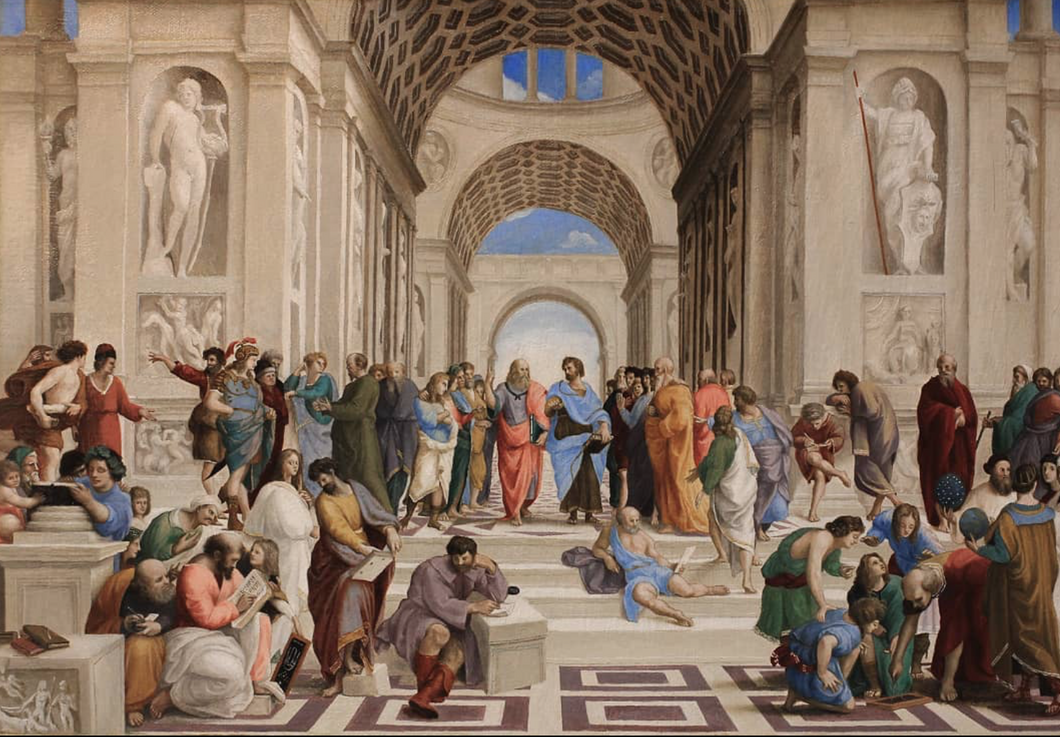Socratic Seminars.
When the term is brought up in classrooms extroverts see a chance to get a "free grade" for speaking and introverts internally groan while trying to figure out a million ways to get out of speaking. Whether you're a fan of this form of class discussion or not, the practice dated back to the fifth Century B.C is an important one that should be integrated into every classroom.
According to The University of Chicago website, the Socratic Method is the process of seeking the answers and opinions of colleagues, through continuous questioning and discourse, and finding a contradiction to an original answer. This process breaks apart the unrealistic idea that there is only ever a right answer or a wrong answer.
Students who learn how to effectively communicate during these seminars are better communicators and thinkers. When participating in these group discussions, basic communication skills are gained that can help better a person's thought process as well as aid those around them in advancing their own ideas. This is a mutually beneficial practice to those who find strength in participating in verbal discourse, and those who are looking to gain that strength.
When students are having, trouble putting together their thoughts about something they have read, watched or encountered, a Socratic Seminar allows them to hear the ideas of their peers which in return can help them pinpoint their own ideas and add to the discussion. This is not the only benefit though, let's say as an example, the discussion is on the topic of a poem that each person has read. The Socratic process allows for different interpretations to be heard and discussed, which broadens the mind of each and every participant.
According to Facing History and Ourselves, Socratic Seminars are an important way to teach students, "how to listen to one another, make meaning, and find common ground while participating in a conversation."
According to Scholastic, the main idea that Socratic Seminars can teach people is the difference of dialogue rather than discussion/debate. Dialogue being exploratory and involving the suspension of biases and prejudices. Discussion/debate is a transfer of information designed to win or bring closure. As Americans, there is fault and weakness in being able to dialogue effectively, due to the emphasis of arguing for the sake of winning.
In a heated time period filled with polar opposite views on things like politics, many topics lead to debate. The United States was a quarrelsome and hostile environment leading up to and following the 2016 election, which according to AOL.com lead to 16 percent of people to stop talking to family and friends, and 13 percent of people ending relationships due to the strong "Us or Them," mentality prominent during this time frame.
American discussion of politics is a precise example of why the skills gained in Socratic Seminars are crucial. Children from a young age leading right into their adult years of college education need to learn how to have healthy dialogue and share opinions without leading to the end of relationships, or the abandonment of friends and family. This is the exact reason that primary, secondary, and higher education needs to require students to gain this type of skill through the process of the Socratic Method.
Society teaching its students that facing a problem with right versus wrong rather than allowing them to learn to seek out knowledge and questions rather than just the answer is the problem. The type of open discourse presented in Socratic Seminars encourages creative solution making, as well as collaboration. Instead of sitting students down to answer 100 multiple choice questions that mark a very obvious "right" choice, society should embrace the multitude of different solutions that only creative thinking and minds are able to produce.
As a society that functions on the collaboration of others, it is crucial that it's people are taught how to build off of each other's ideas, work through differing opinions without leading to defensive attitudes and end the obtuse idea that everything in life is either right or wrong. As students to the world we are better, as intellectuals, we are better, as humans we are better. It's time to foster this mindset in order to help further ourselves and each other.

















